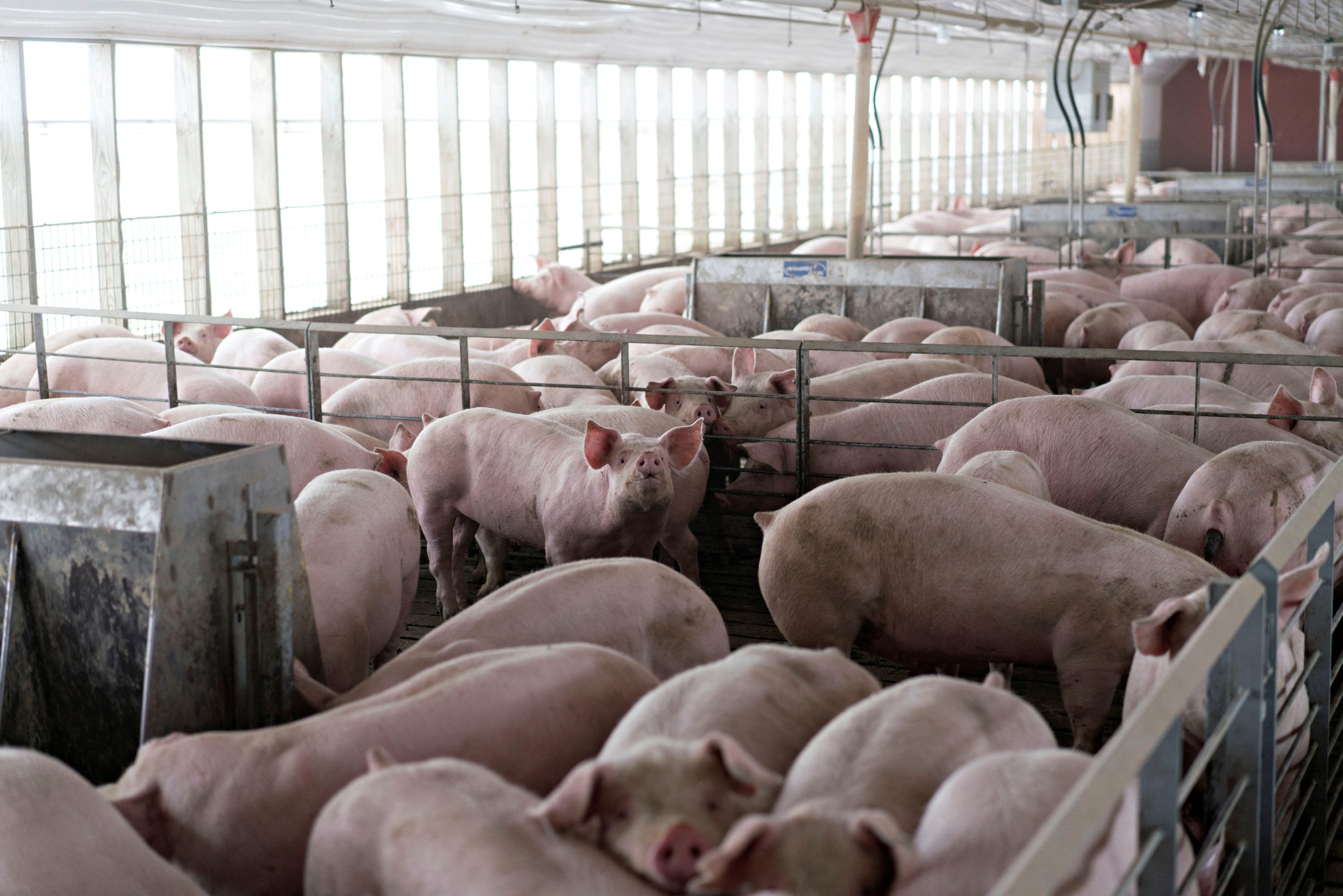
[elfsight_social_share_buttons id=”1″]
The Supreme Court on Tuesday weighed the constitutionality of a California law banning the sale of pork from pigs confined in spaces with too little space to move freely that industry groups have said impermissibly regulates out-of-state farmers.
The justices heard arguments in an appeal by the National Pork Producers Council and the American Farm Bureau Federation of a lower court’s decision to throw out their lawsuit seeking to invalidate the animal welfare measure. The law was approved by voters as a ballot initiative in 2018 to bar sales in California of pork, veal, and eggs from animals whose confinement failed to meet minimum space requirements.
Timothy Bishop, a lawyer for the two groups, faced questions during the arguments from justices about why the law was too burdensome for farmers in other states to follow. Bishop sought to make the case that, as the lawsuit argued, the measure violates a provision of the U.S. Constitution known as the Commerce Clause, which gives Congress the power to regulate interstate commerce.
“It’s an extraterritorial regulation that conditions pork sales on out-of-state farmers adopting California’s preferred farming methods for no valid safety reasons,” Bishop said.
Some justices noted that California’s law was not regulating those out-of-state farms themselves but the products sold within its own borders and questioned why the state was not allowed to do so when it also possessed the power to ban sales outright.
“As I read California’s law, it’s about products being sold in California,” conservative Justice Clarence Thomas said. “Unlike some of the cases you cite, it’s not reaching out and regulating something across state lines.”
Liberal Justice Sonia Sotomayor said that while the most populous U.S. state represents a huge market, “no one is forcing them to sell to California.” Farmers could continue selling pork below California’s standards elsewhere, Sotomayor said.
Some other justices questioned what effect a ruling in favor of California could have and whether it could embolden states to adopt sales restrictions to push politically divisive policy preferences.
“A lot of policy disputes can be incorporated into laws like yours,” liberal Justice Elena Kagan told California Solicitor General Michael Mongan.
What would stop states from conditioning sales, for example, on union practices or immigration concerns, Kagan asked.
Bishop’s argument relied on a legal doctrine called the “dormant” Commerce Clause, which bars states from passing laws discriminating against commerce in other states.
A ruling is due by the end of June. A decision favoring the pork industry could undermine the power of states to regulate a range of issues within their own borders, according to legal experts.
Animal rights groups have said some pork producers confine mother pigs in cages so small the animals cannot turn around for most of their lives. The pork industry has said the size of the cages used at pig farms is humane and necessary for animal safety.
The Supreme Court took up the case after the San Francisco-based 9th U.S. Circuit Court of Appeals affirmed a district court’s decision to throw out the lawsuit, finding no Commerce Clause violation.
President Joe Biden’s administration has sided with the pork producers, saying in a Supreme Court brief that states cannot ban products “that pose no threat to public health or safety based on philosophical objections.”
Copyright 2022 Thomson/Reuters
